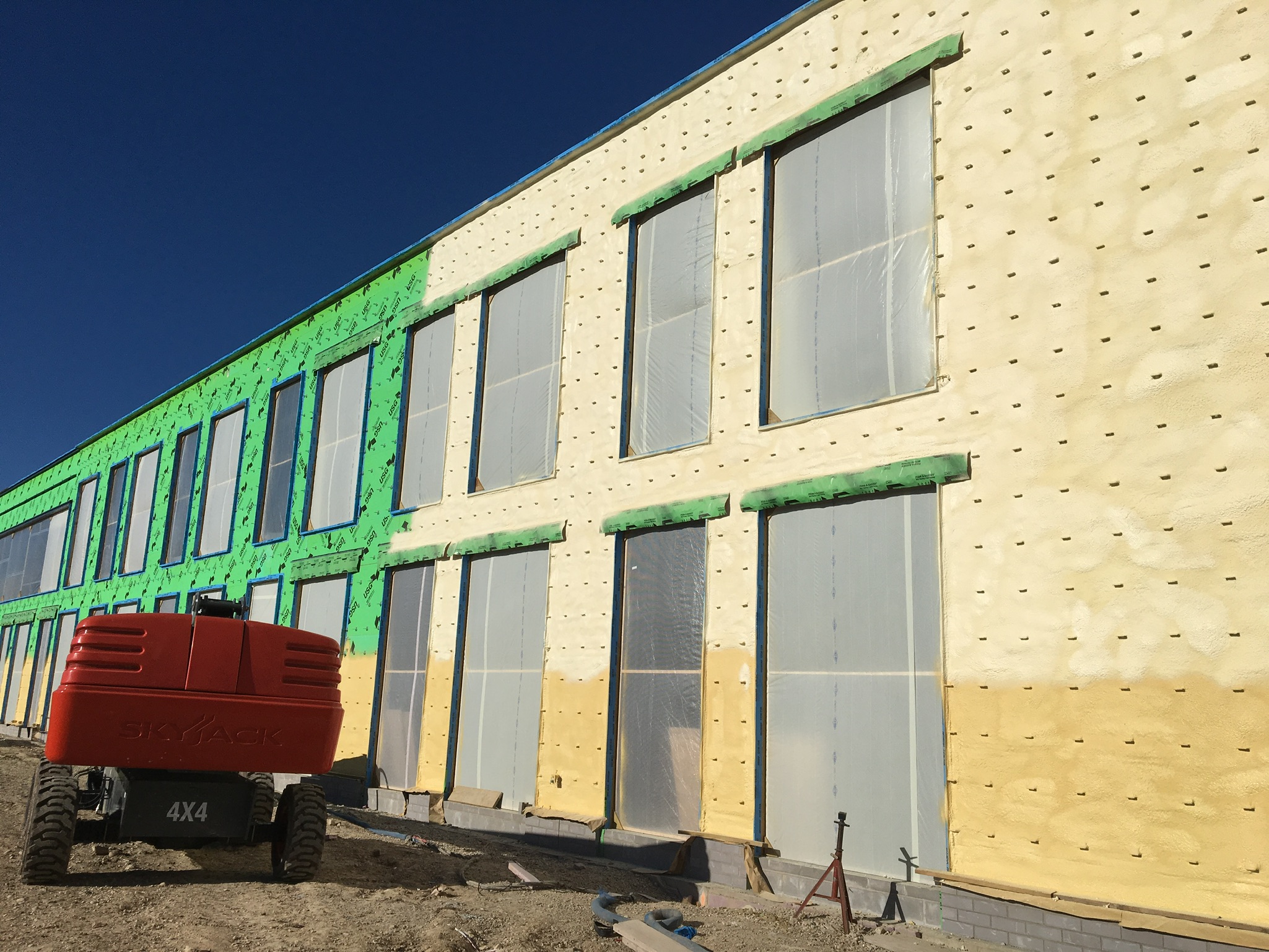Benefits of using Spray Foam in Commercial Projects
When it comes to insulating commercial buildings and structures, spray foam insulation stands out as a superior choice for performance and versatility. Both open-cell and closed-cell spray foam offer unique benefits that make them ideal for a wide range of applications. Whether you prioritize energy efficiency, structural reinforcement, soundproofing, or moisture control, these two insulation types provide exceptional solutions tailored to meet the specific needs of your project. Understanding their individual qualities can help you maximize the value and performance of your commercial building..
OPEN CELL SPRAY FOAM BENEFITS
Superior Air Sealing
Open-cell spray foam expands to fill every crack, crevice, and gap, creating a seamless air barrier. This reduces air leakage, improves energy efficiency, and lowers heating and cooling costs—a win for both the environment and your heating and cooling budget.
Enhanced Soundproofing
The porous structure of open-cell foam absorbs sound waves, making it ideal for noise reduction. Whether it’s offices, hotels, or schools, this insulation helps create quieter and more productive environments by minimizing noise transmission between rooms and floors.
Cost Effective Insulation
For large-scale commercial projects, open-cell spray foam is often a more affordable option compared to closed-cell foam. Despite its lower cost, it still delivers excellent thermal performance, making it a smart, budget-friendly choice.
Moisture Management
As a vapor-permeable material, open-cell spray foam allows moisture to escape, reducing the risk of trapped water and mold growth. This feature is especially valuable in humid climates or buildings requiring robust moisture control.
CLOSED CELL SPRAY FOAM BENEFITS
High R-Value and Energy Efficiency
Closed-cell spray foam boasts a significantly higher R-value per inch compared to other insulation types. This makes it highly effective in minimizing heat transfer, reducing energy consumption, and supporting sustainability goals—a must for many commercial projects
WATER AND VAPOR BARRIER
The rigid and dense nature of closed-cell foam adds substantial structural strength to walls, ceilings, and roofs. This added durability is especially beneficial in areas prone to high winds, heavy snow loads, or seismic activity, helping commercial buildings withstand external forces more effectively.
Structural Reinforcement
Closed-cell spray foam is impermeable to water, making it an excellent choice for moisture control. It prevents water infiltration and minimizes the risk of mold and mildew growth, making it ideal for environments such as cold storage facilities or buildings in flood-prone areas.
SPACE-SAVING
Due to its high R-value, closed-cell foam achieves excellent insulation performance with less material thickness. This is particularly advantageous in commercial projects where maximizing interior space is critical.



